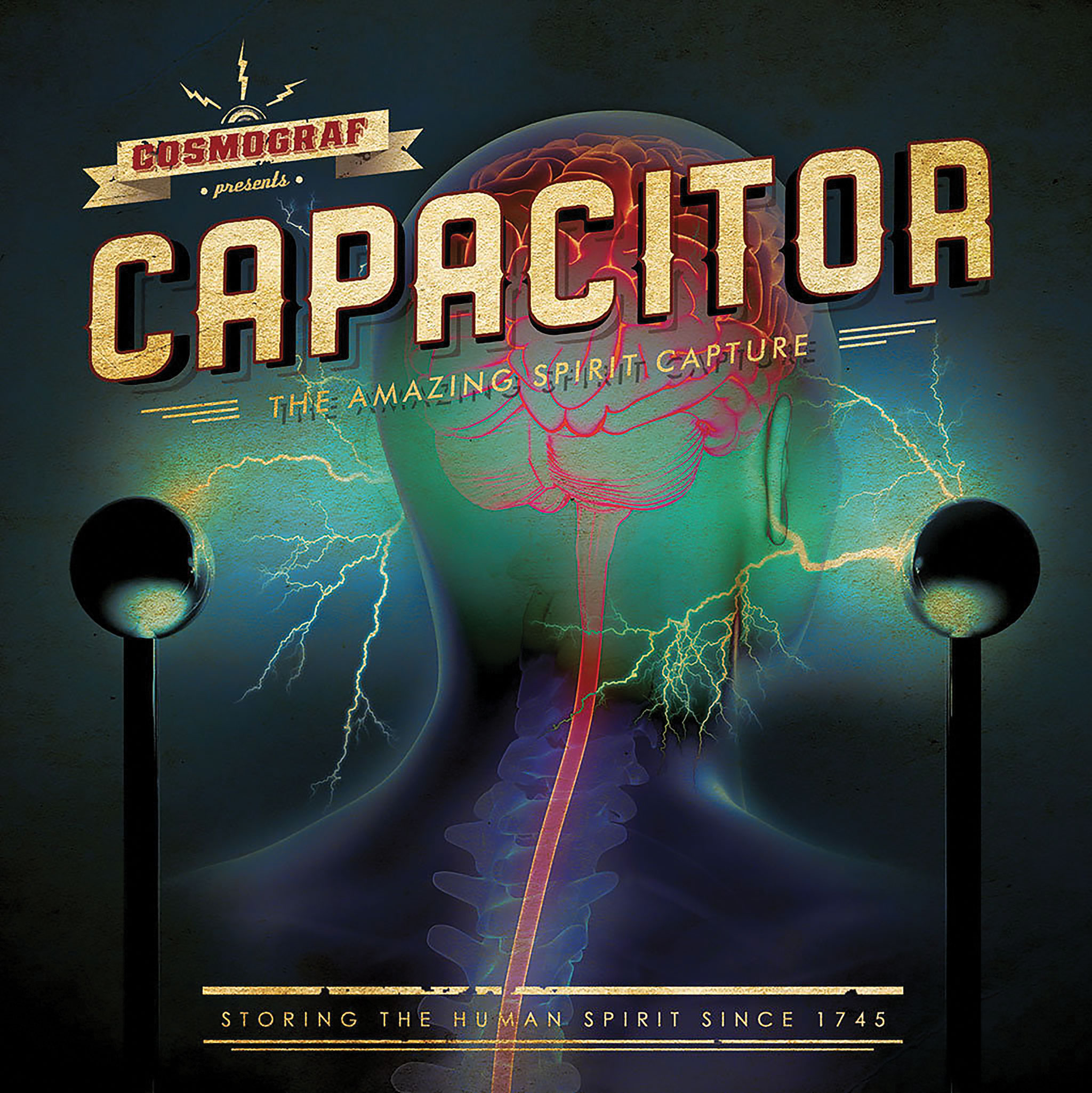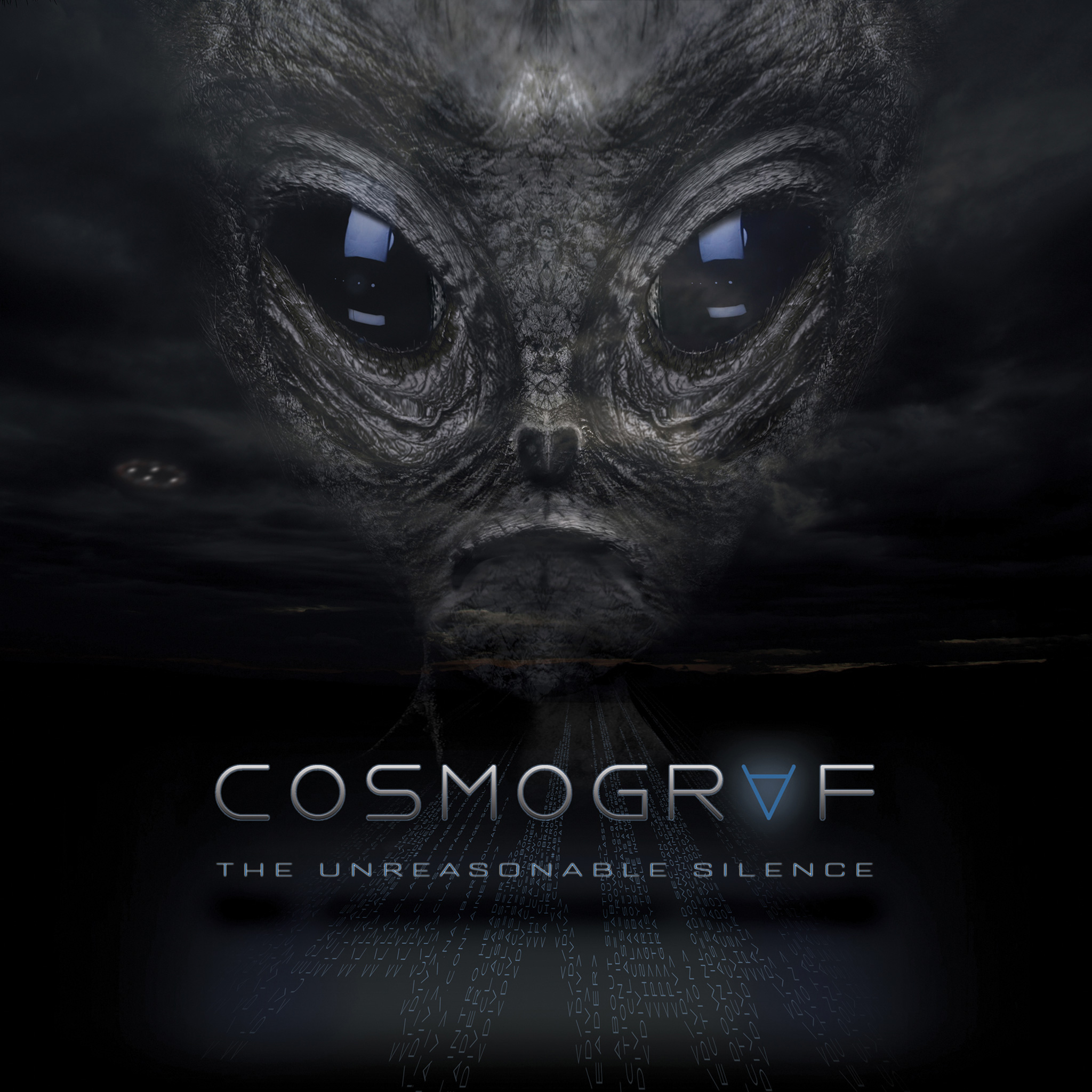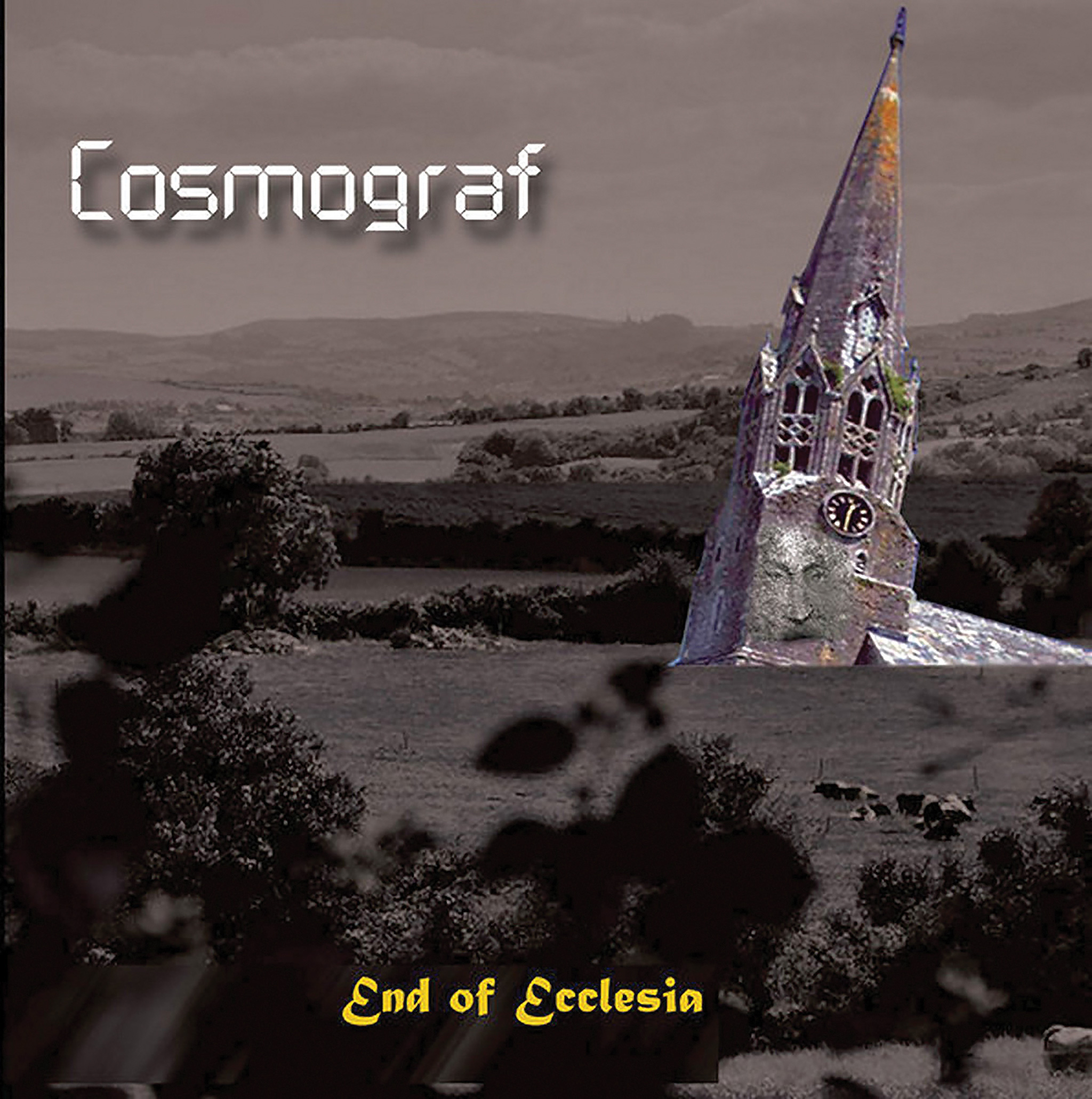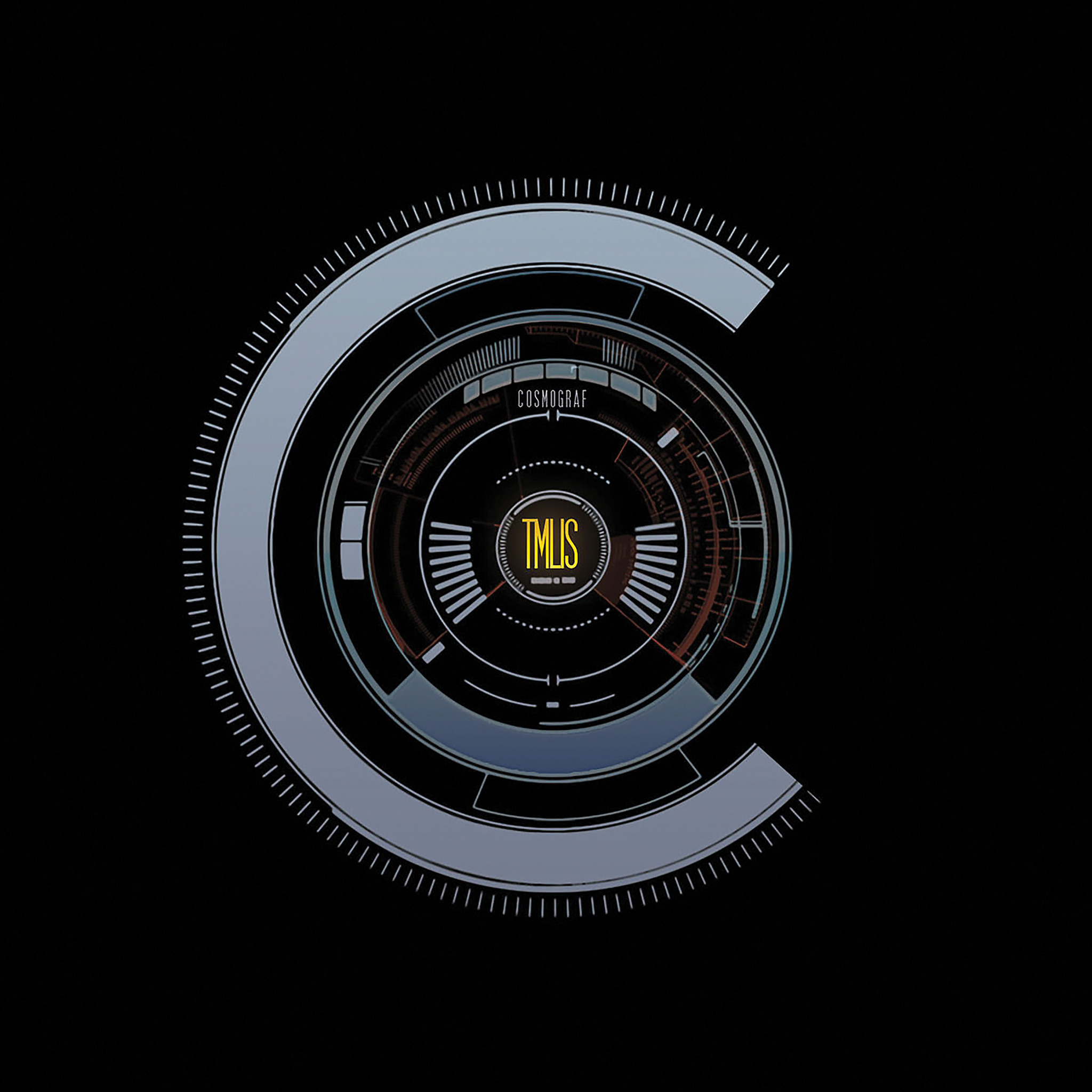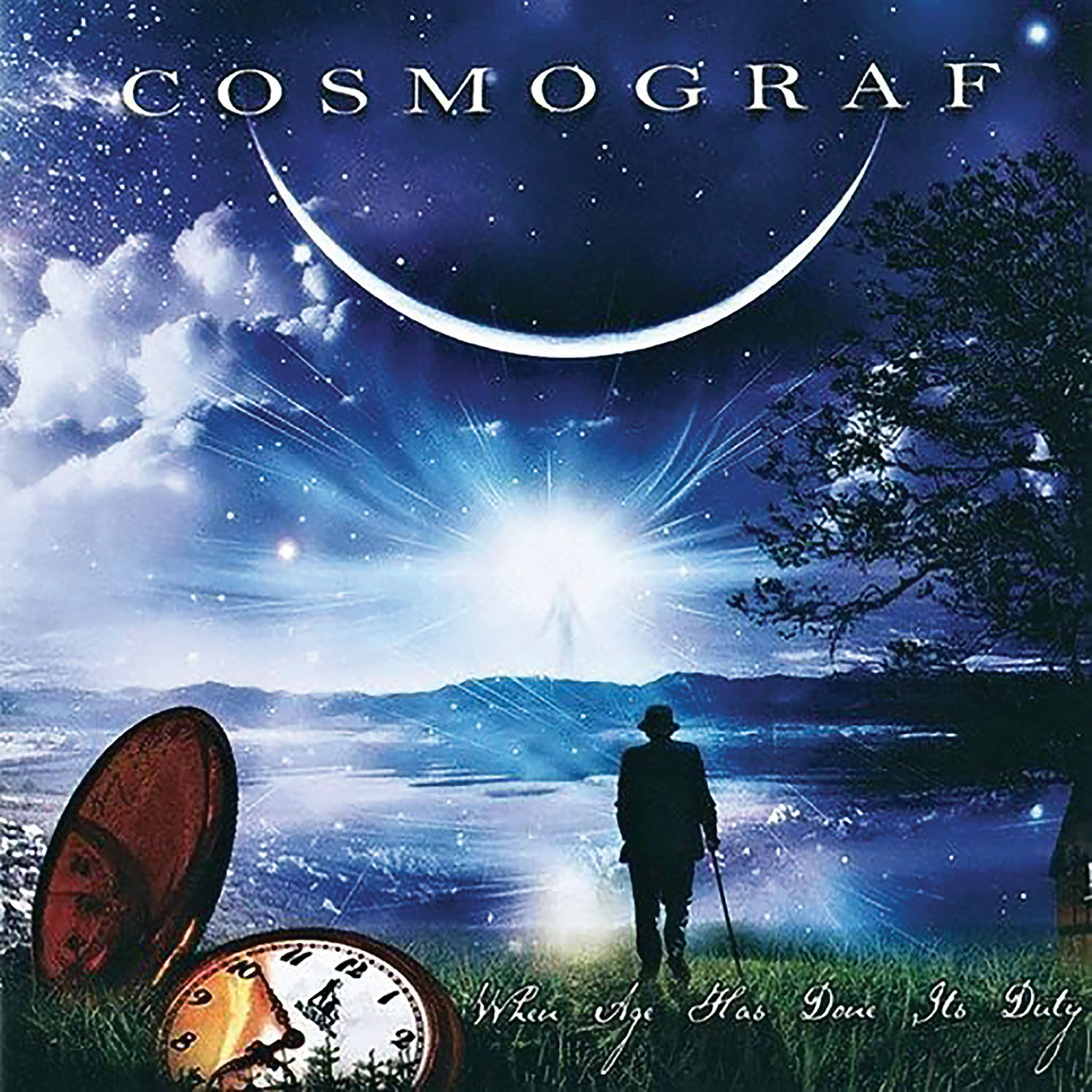Robin Armstrong, the wizard behind the curtain of Cosmograf, flies in the face of conventional wisdom. He doesn’t tour, has only played one single gig with Cosmograf, and his new album, The Unreasonable Silence, addresses the human condition with a story about aliens in Iowa. Armstrong started releasing music under the Cosmograf banner in 2009. He plays multiple instruments and records and mixes most of the tracks at his studio The Trees, which he built down the bottom of the garden – the only exception being the drums which he records at Aubitt Studios in Southampton. It’s a Herculean task but the narrative in The Unreasonable Silence was inspired by another mythic figure – Sisyphus, who was condemned to spend eternity rolling a boulder up a hill, only for it to always tumble back to the bottom. Armstrong came to the tale via the French thinker Albert Camus. “He was a philosopher that dealt with the human condition which is an area I always seem to end up writing about in my concept albums,” says Armstrong. “What I’ve done is a bit of a modern take on that by mixing it with a more sci fi-inspired story. The rock and the hill are probably very much the same as they always were in Camus’ mind in that it’s the constant struggle for the meaning of life. He described the struggle as the confrontation between the need of humans to work out why they’re here, their purpose, and the fact that the world that they live in doesn’t give them any clues at all. That’s what he described as ‘The Unreasonable Silence’, that the world gave no clues as to why they were here.”
The Sisyphus figure on the album is a software engineer, originally from northern England, now working in Iowa, who, in Armstrong’s words, “doesn’t understand what he’s doing, becomes disillusioned. He starts to become a bit unhinged and believes that his destiny lies not on this world but there must be a bigger force at work and starts to think that aliens might be coming for him”.
The songwriting and the narrative are separate processes at the outset, then Armstrong gradually winds the two threads together as the music develops. “It becomes quite a torturous process right towards the end to get everything to make sense and fit into place,” says Armstrong, who often finds himself with leftover musical fragments. “I do tend to make a rod for my own back with this way of doing it, because with concept albums you’ve really got to make sure that everything ties up and makes sense. That works sometimes at odds with the way I approach music because I like to jump all over the place and try different styles. As you listen to the album, it jumps in and around different styles; it jumps into classic rock and then back out, then into very proggy moments. There’s a track that doesn’t even feature a guitar at all, so I like to move around but that can work at odds with trying to do a consistent story.”
A review of Cosmograf’s discography reveals an abiding love for the concept album and despite the creative challenge of crafting a cohesive work, Armstrong has no plans to alter the format. “After just about every album I’ve done I say, ‘Next one, I’m not doing this again’,” he says. “I just want a break from it and to be able to explore purely musically and not do anything in terms of a concept where each song stands in its own right, but I just get drawn into it again. It seems to happen every time despite my best efforts.”
On the one hand, Armstrong has the freedom of being his own boss in Cosmograf. He self-releases the albums, writes the music, hires the players, and does most of the production work at home. So there’s a temptation there to noodle and tweak forever. Fortunately, he has more discipline than that, although it’s a balancing act. “It’s something I’m used to because I’ve got a background in a corporate-type job,” he says about deadlines. “I was a project manager of some description so I have experience of seeing the end goal and setting milestones to get there. I try not to be too prescriptive because at the end of the day it is art, so I still adopt the mantra that it’s finished when it’s finished. It’s got to be right. Some of the early albums I tried to deliver in very much a project management approach, ‘Right, it has to be out on this date’, and because I haven’t quite got it to the level I wanted to but I’ve let it go anyway, the quality has not been there.”
Armstrong has a knack for pulling some prog heavyweights into his orbit to bring his musical visions to life. On previous albums he’s been able to work with The Fierce And The Dead’s Matt Stevens, Bob Dalton from It Bites, and Steve Dunn from Also Eden. On The Unreasonable Silence he’s reunited with past collaborators Nick Beggs, Dave Meros and Nick D’Virgilio, alongside new guest vocalist Rachael Hawnt. “When I’ve brought other musicians in I’ve really tried to give them as much free rein as possible, hoping that they’ll add something to it, they’ll bring their own style, and that has worked brilliantly in the past,” says Armstrong. “With Nick D’Virgilio, he’s just a brilliant drummer and he can deliver not what you’d want but what you’d hope for. You can only direct to the limits of what you know musically and he can take it further than that. He can take it to that next level which I’m hoping he’s always going to do. There is a danger, and I’ve seen it with other musicians, they go into the studio and they’re very prescriptive with their session players and they won’t let them add their flair and ideas. That’s a mistake because if you want it to groove and breathe, make it sound like a band, you’ve got to let other players add to it. You’ve got to be a bit brave.”

On that front, when D’Virgilio played on the track This Film Might Change Your Life, Armstrong wanted the drummer to cut loose and he duly obliged. “I was just blown away watching him in the session because he launched straight into that,” says Armstrong. “He listened to the track once, stepped into the booth and just went for it and that’s what came out. I couldn’t understand how he’d managed to absorb that so quickly and come up with such an incredible performance. He does this mini drum solo on the second verse which he just did straight off. I said, ‘Just go for it, because there’s going to be a narrative over the top of this, not really anybody singing, so you can go mad,’ and he came up with that performance which I don’t think any other drummer could have come up with.”
For his second album, When Age Has Done Its Duty in 2011, Armstrong signed with Festival Music but he returned to self-releasing for The Man Left In Space two years later and hasn’t signed with a label since. “It worked okay, it got me a little further up the ladder in terms of exposure but it did very little in terms of getting enough money back to go into the next record,” says Armstrong about working with a label. “It was a frustrating process so I took the decision to self-release and see how far we’d get. Although the sales have been quite modest, what little has come in has been mostly mine, so I’ve been able to plough that income into the next record. I think one of the problems for bands that get stuck on small labels is they get into this trap where they get an advance for the record but that will only really pay them back for the costs that they incur making the record. So they’re back to square one in terms of financing the next record whereas when you self-release you have a vehicle to fund the next release. I’ve been fairly lucky like that in that
I can plough a little more in each time.”
While the rise in illegal downloading and streaming has meant more artists rely on their income from touring, Armstrong has only performed one single live show with Cosmograf – at Celebr8 two years ago – and has no plans for more. “That’s really difficult for me,” he says. “Even to get to the first base where you’re in a van touring, you’ve got to get five or six other musicians that want to play your music. They’ve either got to be in a band dynamic where they share the writing and the misery and the lack of funds coming back, or you have to hire session musicians. If you’ve got to hire session musicians, then the whole thing becomes completely cost-prohibitive.”
For Armstrong, there is no ‘one size fits all’ approach to building a fanbase and reaching listeners. “I’m friends with Matt Stevens from The Fierce And The Dead, he’s got a slightly different take on it. He’s into gigs and tours, they’ve built a big following that way, but I think it particularly works with the sort of music he’s doing,” he says. “His band has a raw energy that is really appreciated live and the records he’s done are a reflection of that live performance. It’s four guys in a room and the record sounds like four guys in a room. Cosmograf is very much more of a studio production. There is lots of narrative, lots of sound effects, lots of atmosphere, quite a lot of instruments. That’s not going to come across in a busy pub or a bar. It won’t work. I’ve never really thought that it was a good vehicle to promote it, you just end up coming across as a very average band – maybe a very average pretentious band!”
Across seven years and five releases, the sound of Cosmograf has developed from its rough-around-the-edges origins into the ambitious scope and vision of The Unreasonable Silence. Without tours, a label or a band, Armstrong has stayed true to his vision and keeps rolling that boulder up the hill knowing that – Sisyphus be damned – one day, he’s going to reach the zenith.
The Unreasonable Silence is out now from Cosmograf Music. Visit Cosmograf’s website for more information.


The Cosmograf Back Catalogue
Prepare For Launch With Robin Armstrong.
**End Of Ecclesia **(2009)
“The early albums I produced were of fairly questionable production quality because at that stage I was learning the ropes really,” says Armstrong. Steve Dunn lends some guitar and bass to the album, which hints at the sonic grandeur to come.
When Age Has Done Its Duty (2011)
A leap forwards in both sound and songwriting, with a strong hint of Pink Floyd in the sombre mood of the title track and Dog On The Clee. A host of guest musicians appear, including Bob Dalton from It Bites, and Steve Dunn from Also Eden.
The Man Left In Space (2013)
“I think some of my best songwriting was done on The Man Left In Space,” says Armstrong. Nominated for a Prog Limelight award, this was the first Cosmograf record to feature drummer Nick D’Virgilio, plus guests Matt Stevens, Dave Meros and more. Oozing atmosphere, the album tells the story of a doomed space mission.
Capacitor (2014)
Where earlier records suggested the influence of Pink Floyd, Capacitor has a more contemporary, neo-prog vibe in the vein of Steven Wilson. Exploring the link between technology and the human spirit, Armstrong envelopes the listener in his sonic landscapes.

